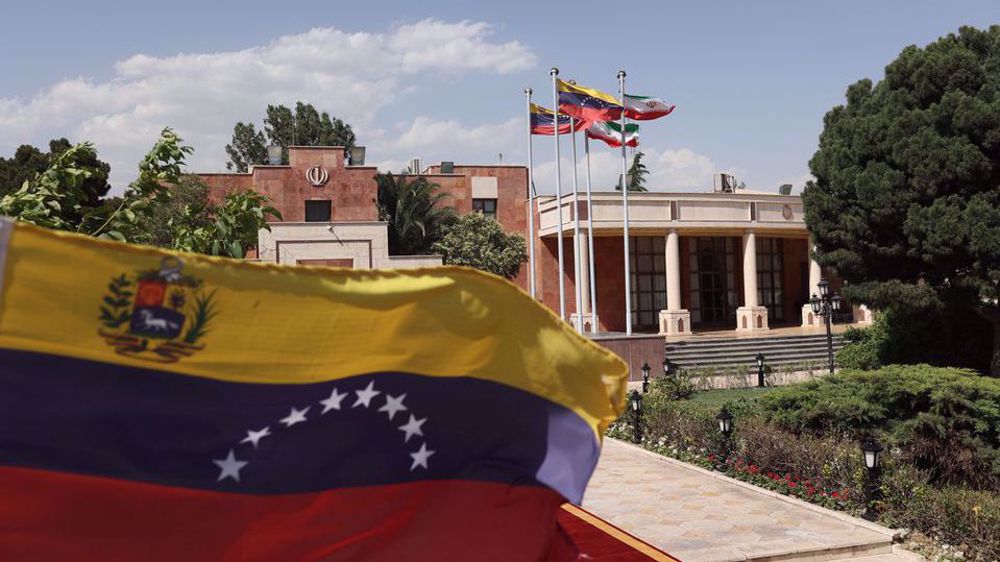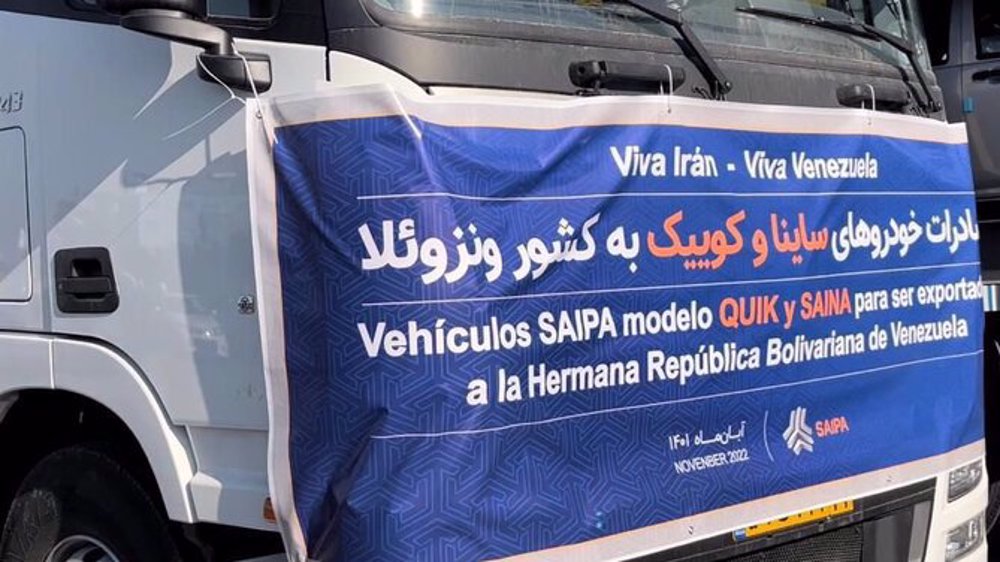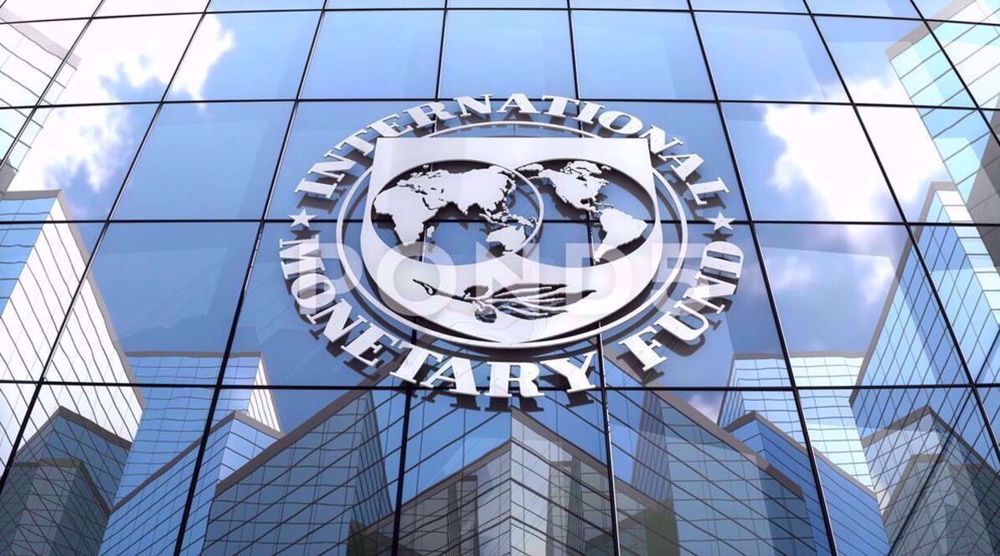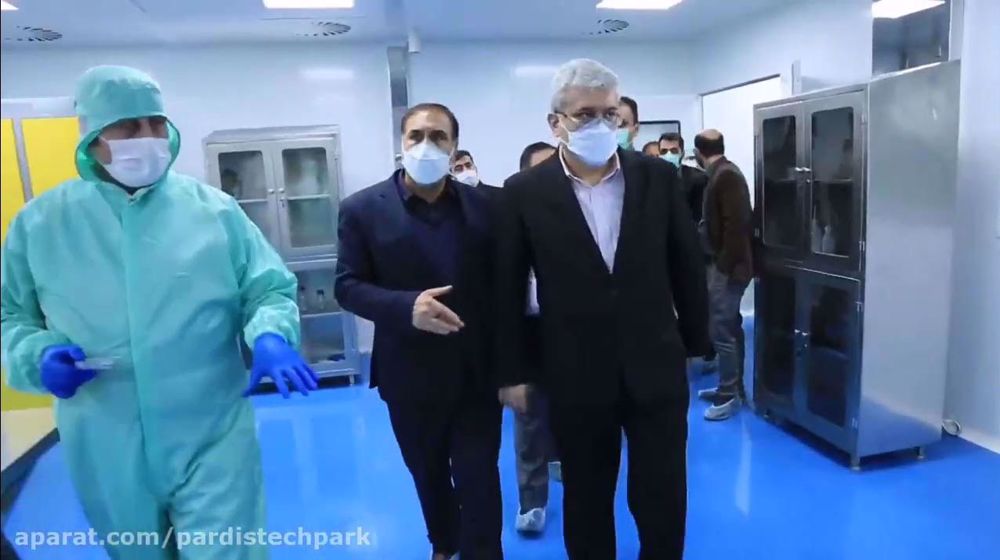Iran-Venezuela relationship develops beyond energy
Iran is planning to ship another 2,000 cars to Venezuela, an Iranian trade official says, in a further sign of a burgeoning relationship that appears to be developing beyond energy.
It comes after the first shipment of 1,000 Saina and Quik models built by Iranian company SADRA headed to Venezuela from Bandar Abbas in southern Iran last week, in a ceremony attended by visiting Venezuelan Minister of Transport Ramón Velásquez.
“We agreed to export more than 100,000 cars from Iran to Venezuela within five years,” head of the Americas bureau of the Trade Promotion Organization of Iran Zahra Abiri said in remarks published Wednesday.
Both Iran and Venezuela are heavily sanctioned by the United States, and this has brought them closer. Iran regularly sends oil to crisis-stricken Venezuela, and has also loaded Venezuelan oil for sale abroad. Venezuela is rich in oil, but its refinery industry has crumbled. The country announced in February the start of direct flights between Tehran and Caracas.
Venezuelan President Nicolas Maduro visited Iran in June during his trip to the region, where the two countries signed a 20-year cooperation plan.
Abiri said in the 20-year agreement document, the most immediate cooperation between the two sides has been planned for the next two years.
“Iran and Venezuela are under US sanctions, both of which are members of OPEC and can cooperate effectively to neutralize the sanctions,” she said.
“Venezuela has more than 33 million hectares of arable land with plenty of water,” she added, indicating that Iran can use the potential for overseas cultivation with the aim of improving its food security.
Abiri touched on Iran’s energy contracts to improve Venezuela's electricity system, its sending of medicine, especially for curing cancer, exchange of scientific cooperation and investment of more than 40 Iranian companies in Venezuela.
On Tuesday, another Iranian official said Venezuela has signed a memorandum of understanding with Iran to help recover 10,000 megawatts of power generation in the South American country.
The agreement is about to be taken up during a planned visit by Iran’s Parliament speaker Mohammad Baqer Qalibaf to Venezuela and brought to the execution phase, CEO of Iran Powerplant Repairs Company Massoud Moradi said.
As Venezuela’s economy begins a rebound, the government seeks to rebuild a crumbling electricity grid plagued by constant blackouts and a lack of maintenance in the face of US sanctions.
Gas- and diesel-burning generation facilities that serve capital Caracas as well as those that supply electricity to infrastructure used by the oil industry are central to President Maduro’s bid to put his country’s economic ship on an even keel after years of turbulence.
“Venezuela has announced the need to repair 10,000 megawatts of power plants, and a memorandum of understanding has been signed in this regard,” Moradi said.
“Given Iran's potential in the field of power plant repairs, there is the ability to complete the 10,000 megawatts of Venezuela's repair needs,” he added.
The repairs will help Venezuela overcome regular blackouts and years of rationing, as well as improve power supply in oil-producing areas hit by outages.
President Maduro reportedly plans to invest around $1.5 billion by 2025 to rebuild the country’s generation system which has a capacity to produce roughly 32,000 megawatts of electricity.
The national grid is highly dependent on the huge Guri hydroelectric facility in southern Venezuela that produces as much as 80% of the power, but has been ravaged by years of mismanagement.
Russian court orders Google to pay staggering fine of $20 decillion
Yemeni forces carried out five operations in Haifa, targeting six ships, in one year: Report
Israeli war machine fails to penetrate Lebanon despite barbaric bombardment: Houthi
VIDEO | Is West's dominance over?
VIDEO | Five Syrians killed in Israeli airstrikes on al-Qusayr near Homs
VIDEO | South African resistance leaders reflect on ways to overcome Israeli aggression
VIDEO | Press TV's news headlines
VIDEO | Netanyahu pressured on a ceasefire











 This makes it easy to access the Press TV website
This makes it easy to access the Press TV website